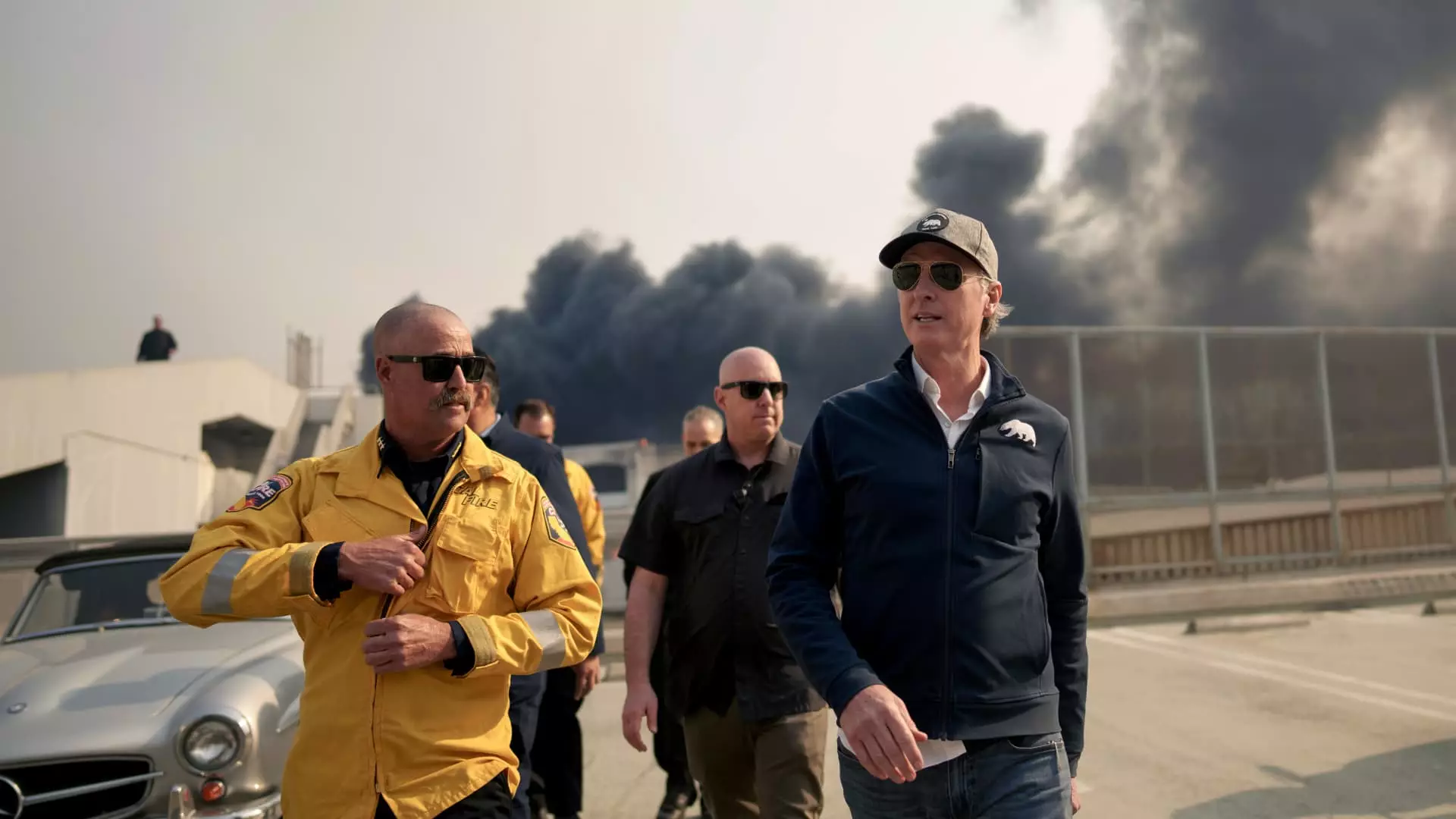The ravaging wildfires in California have reignited not just environmental concerns but also political tensions, particularly between California Governor Gavin Newsom and President-elect Donald Trump. The disaster, characterized by its unprecedented scale and destruction, serves as the backdrop for a critical examination of how misinformation and political posturing can cloud essential discussions around disaster management and response strategies. This article delves into the recent exchange between Trump and Newsom, exploring the implications of their interactions for the state and its residents.
The complexity of managing catastrophic events such as wildfires is often exacerbated by the rhetoric of public figures. In a recent NBC News interview, Gov. Gavin Newsom openly criticized Trump’s response to the wildfires, specifically his use of derogatory language and unfounded claims aimed at discrediting Newsom’s leadership. Newsom’s frustration is palpable as he referenced Trump’s use of the term “Newscum,” a derogatory nickname, illustrating the petty nature of political discourse in a time when empathy and constructive dialogue are desperately needed.
Trump’s claims, particularly regarding a purported failure to sign a water restoration measure, exemplify how misinformation can derail public understanding and blame the wrong parties during a crisis. This tactic disregards the complexities of environmental management, reducing intricate policy discussions to sound bites designed for social media. Furthermore, by linking the crisis to environmental protections like those for the delta smelt, Trump oversimplifies a critical issue, alienating organizations and individuals committed to ecological preservation.
Misinformation, as Newsom noted, does not serve public interest. The assertion that environmental regulations are to blame for the wildfires not only distracts from the real issues at hand—such as climate change and resource management—but also fosters an atmosphere where responsible governance becomes stigmatized. Newsom’s rebuttal highlighted the absurdity of Trump’s claims, emphasizing a disconnect between actual scientific understanding and the rhetoric employed by political leaders.
In addition to the targeting of Newsom, Trump’s statements claiming that “NO WATER IN THE FIRE HYDRANTS, NO MONEY IN FEMA” pose a risk of scaring residents and undermining coordination efforts between state and federal agencies during emergencies. Such statements can lead to panic and fear among residents, which ultimately hampers the coordinated response necessary for dealing with a natural disaster of this magnitude.
In a remarkable move aimed at bridging the gap created by political animosity, Newsom invited Trump to visit California to see the destruction firsthand and acknowledge the bravery of those combating the fires. This invitation reflects the governor’s willingness to engage constructively, even with a political adversary. However, it raises questions about Trump’s responsiveness to such overtures.
As Newsom expressed concern over potential delays in federal disaster assistance—a fear rooted in Trump’s history of withholding aid from political adversaries—one must consider how partisan divides can complicate support for disaster-affected areas. It is vital that leadership, at all levels, prioritizes the needs of citizens over political gamesmanship.
The ongoing dialogue between Newsom and Trump amid catastrophic wildfires serves as a potent reminder of the interplay between politics and public welfare during crises. To navigate the challenges posed by natural disasters, it is essential for leaders to rise above petty grievances, prioritize fact-based discourse, and cultivate an atmosphere of collaboration. As California grapples with wildfires, the focus should decisively shift towards solutions rather than antagonism, ensuring that the needs of the affected communities are met with urgency and compassion.
Addressing wildfires and their aftermath requires primarily unified action that transcends political affiliations—the kind of action that honors courage, uplifts communities, and fosters a resilient future.

